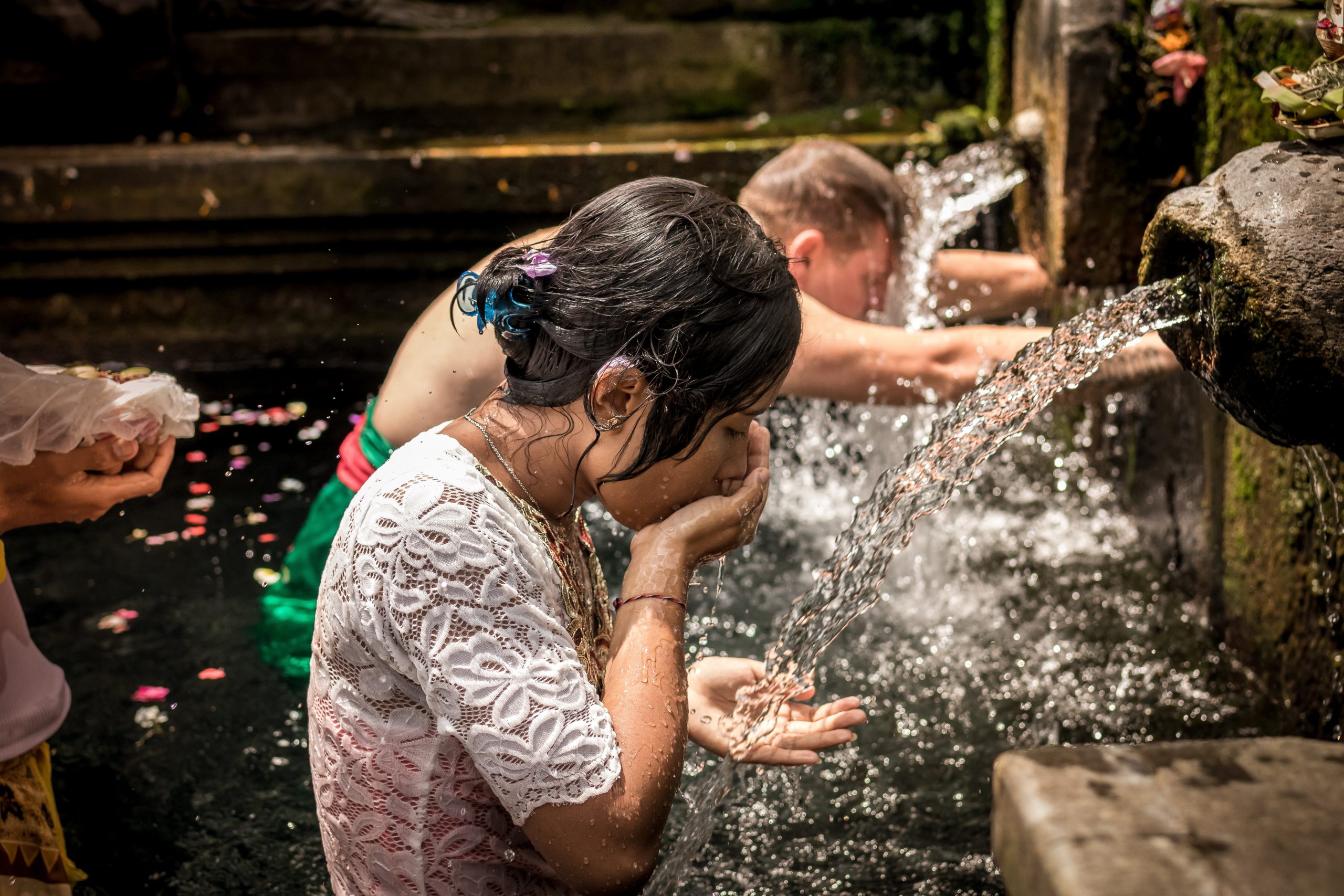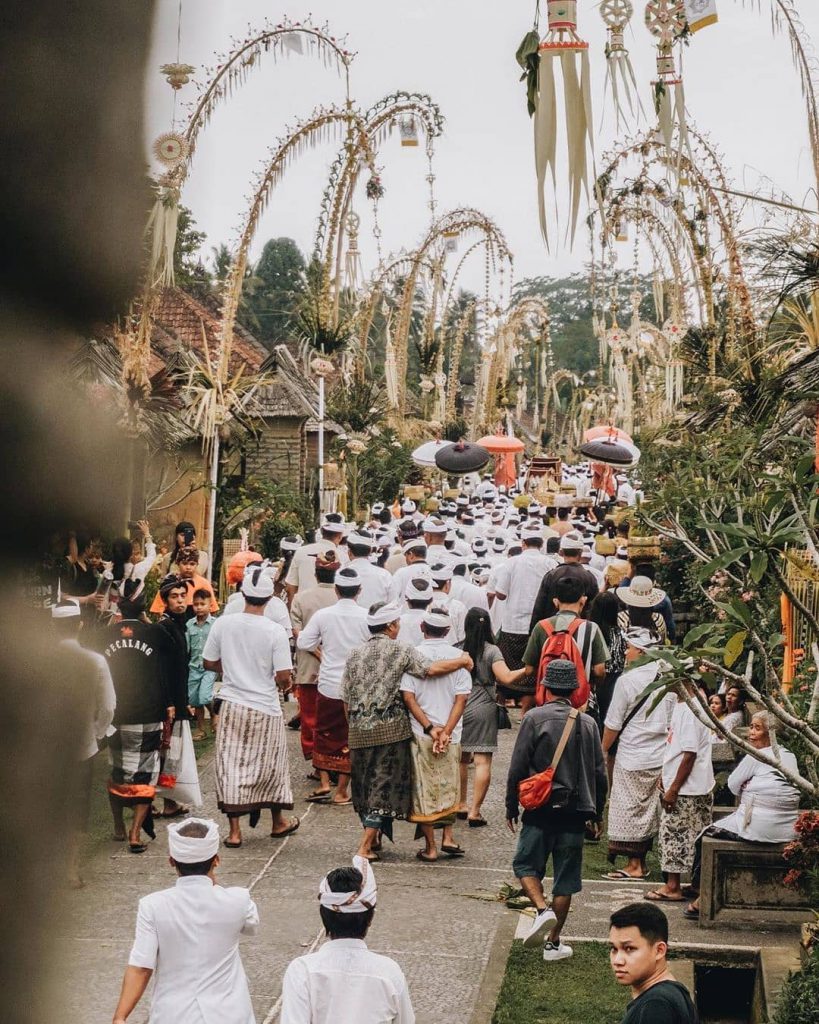Bali is not only famous for its beaches, but also for its culture. There are a lot of ceremonies, celebrations, and festivals in Bali, meaning that the locals really appreciate every aspect of their life. The festivals usually relate from birth to death. Some are very sacred and quiet, some are very festive and hugely crowded.
For tourists, this means another reason to visit or come back to Bali. There is always something new, different, and exciting in every visit. By witnessing or being part of the religious festivals and ceremonies in Bali, brings more Bali experience and maybe tempt you to stay longer.
Nyepi-Day of silence
According to the Balinese lunar calendar or Saka, Nyepi is New Year’s Day. On this day, mostly all activities are not allowed to happen. Businesses are closed, transport is not allowed on the road, even the airport is shut, no electricity, no fire, no sound, the island is in silent for wholly 24 hours.
Nyepi usually happens in March, so if you are planning to experience the silent day in Bali this is the right time. Introspection and spiritual cleansing are what you will get. As the celebration is famous worldwide, some hotel, villa or resort is offering Nyepi Package in one of their offers.
Check Out Places to Visit in Bali with Your Family
Galungan and Kuningan, festivals in Bali to celebrate the victory of virtue over the villain
Photos: Instagram/@desaadatpanglipuran
When you happen to find Penjor, a traditional and religious sign made of bamboo poles with offerings suspended at the end on some roads of Bali, then it is likely when Galungan and Kuningan happen. These are some of some important religious festivals in Bali, celebrated by the Hindu. The festival usually happens around 10 days in some locations in Bali. The dates will vary and is different from one year to another because it is dependent on the Balinese calendar.
This festival is the celebration of good and the overcoming of bad. In the beliefs, the spirit of the ancestors returned to earth. Therefore the offerings are placed in the Penjor to welcome the spirits, that is why you can find them anywhere. At the end of the day of the festival, it is known as Kuningan you will find yellow rice as the offerings. In this time also, the spirits of ancestors would return home, leaving the earth.
Check out Day Trip in Nusa Penida
Odalan, Festivals in Bali to Celebrate The Anniversary of Temples
There are over 4500 temples on the island, a place where ceremonies and festivals in Bali take place every day or on special occasions. Now, do you know that every temple anniversary is celebrated? The name of the celebration is Odalan. This celebration is usually last about 3 days, but some larger one can last until 11 days.

During the religious festival or ceremony, the Balinese usually do rituals such as giving offerings, having performances of vocal music, dance, and gamelan. This festival also happened to coincide with either a new or full moon. Some rules for those who want to witness or be part of this festival, such as the participants should not have an open wound, just given birth in the past 42 days, in a state of mourning in the past 42 days, or bring food inside the temple.
Check Out Day Trip in Ubud, What You Can Do
Omed – Omedan
According to history, hundreds of years ago King Puri Oka was sick when some youngsters played Omed-omed outside his place. Omed-omed is when boys and girls pull randomly to each side. Suddenly, when the pulling game is on, boy and girl accidentally kissed. The king was angry and went outside his place. Magically when he was out, he felt better. Realizing it, the King then declared that the Omed-omed should be celebrated the day after Nyepi day or Balinese New Year.
Nowadays, this festival is popular as the mass kissing festival where youngster around 17 to 30 participate. Usually, the festival ends with pouring water as a sign of blessing. The festival is full of laughter and cheers. So much to enjoy! For tourists, you can only watch and enjoy this festival.
Check Out Bali Honeymoon in The Most Dreamy Places
Saraswati, Festivals in Bali to Give Homage to Goddess of Knowledge
Saraswati is a homage to Saraswati, goddess of creativity and knowledge. You may recognize this goddess in the statue of a beautiful woman with 4 arms holding a lontar ( a traditional musical instrument) and mala (a prayer beads). The statue is usually sitting in a lotus flower (as the symbol of holiness) and or accompanied by a swan (the symbol of the line of good and evil).
This festival usually happens every 210 days in the Balinese calendar. It is one of the festivals in Bali when people wearing colorful and bright traditional clothes.
Pagerwesi
This is one of the festivals in Bali to strengthen themselves against evil forces. Pagerwesi usually happens three or four days after Saraswati. In this festival, the rituals are quite the same as Galungan. There will be prayers (in Pagerwesi, Balinese will pray to Sang Hyang Pramesti Guru), enjoys on the road, family visits, and delicious meals.
The name itself is pretty unique and meaningful. Pager is a fence, wesi is iron, the word “Pagerwesi” has meant strong protection from the evil force. This festival is indeed to make the mind and souls get stronger protection.
Check Out Bali Best Holiday Deals
Purnama Kedasa
On every tenth full moon, there will be festivals in Bali It is Purnama Kedasa. To witness the best, you can go to Besakih, the mother temple for Betara Turun Kabeh. It is the invitation rituals for the gods and ancestors to give their blessing.
On this day, locals usually make offerings which consist of food, fruit, and flower. These offerings also accompanied by rituals like bathing in holy water and burning incense.
There are actually more festivals and ceremonies in Bali that we recommend you to know and witness in your days in Bali. Such as Tumpek Landep where the offerings of the festival are made of metal like motorcycles, Tumpek Kandang, or the worship day to the god of animals in which on this day animals like pigs are dressed and decorated with white cloth and fed with special food and sprinkled with rice and water.

